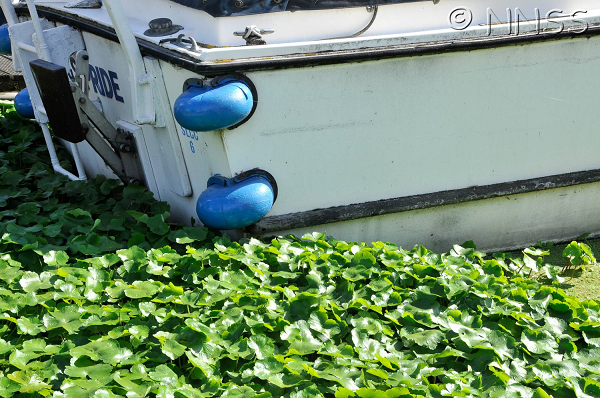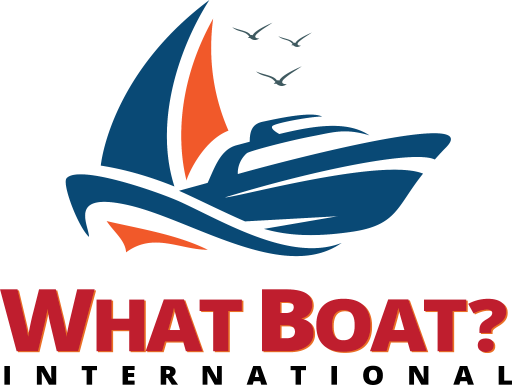
Published on: 05 May 2022

Invasive Species Week – 16-22 May 2022
Did you know that over 2,000 plants and animals have been introduced to Great Britain from all over the world? Known as non-native species, most are harmless, indeed much of our agricultural species (wheat, barley, sheep etc) are not native to Great Britain, but around 10-15% become invasive non-native species (INNS) which will spread and have a harmful impact.
In fact, invasive non-native species are one of the top five drivers of global biodiversity loss. Here in Great Britain, they threaten the survival of native wildlife, damage our natural ecosystems, cost the economy over £1.7 billion a year, can harm our health and interfere with the water-based activities we all enjoy.
We talk to James Brushwood, Environment and Health & Safety Executive at British Marine to find out more about Invasive Species Week and how marinas, clubs and marine organisations can play their part in the weeklong awareness raising programme.
What is Invasive Species Week?
Invasive Species Week (ISW) is an annual national event organised by the GB Non-Native Species Secretariat (NNSS) to raise awareness of the impacts of invasive non-native species. Providing advice and guidance on the simple things everyone can do to help prevent the spread as well as sharing stories on some of the fantastic work taking place across the UK, Ireland, Jersey, Guernsey and Isle of Man to protect the environment and reduce their impacts.
Why would it affect me as a Marine Business?
The spread of invasive species is becoming a major issue in both marine and inland waters around the world because they compete with native plants and wildlife and can cause major changes to entire ecosystems. In addition to the potentially devastating environmental impacts, invasive species can spread disease, restrict navigation, block waterways, clog up propellers and add significantly to the management costs of our waterways.
Recreational facilities can also suffer as a result of these invasive species, as well as the boating community who may face restrictions on accessing certain waters.
For example, the Carpet Sea Squirt (Didemnum Vexillum), has a smothering effect, covering marine habitats in thick sheet-like growths and interferes with fishery and aquaculture operations. While fast-growing species like Zebra Mussels cause many issues including the blocking of engine cooling water intakes resulting in engines over-heating.
Once established, non-native species become extremely difficult and expensive to eradicate, so it is important that marine businesses and water users do all they can to mitigate the spread before it takes hold.
For more information on how non-native species can affect biodiversity, human health and the economy have a look at the Green Blue website – https://thegreenblue.org.uk/get-involved/campaigns/stop-spread/
How do we know if something is an invasive species?
Whilst it isn’t a simple matter of identification there are a few online guides that can help.
- GB Non-native species secretariat – ID sheets
- Marine Biological Association (MBA) – Non-native species guides
While British Marine members can contact James at jbrushwood@britishmarine.co.uk for further information and guidance.
Getting involved
As a marina, club or marine organisation there are many ways you can get involved in Invasive Species Week.
- Increase awareness of invasive species and guidance on how your bertholders / visitors / users can help retard their spread using the downloadable awareness posters available from The Green Blue and by using #INNSweek or #getINNSvolved in your social media. You can download the posters at – https://thegreenblue.org.uk/resources/club-centres-association-resources/awareness-raising-toolkit/awareness-posters/
- Request a Check Clean Dry Awareness Kit using the online Resource Request Form available at https://thegreenblue.org.uk/resource-request-form/. This contains outdoor A3 metal signs to display, guidance leaflets and posters to help raise awareness.
- Set up a Biosecurity facility where your customers can wash down their boats. As simple as a hard standing with available tap water and a hosepipe and nozzle for boats, equipment and clothing to be washed. (Inland sites may be eligible for funding from their local water authority.)
- Promote the reporting of INSS with the use of the various online recording sites or via easily available smartphone apps such as iRecord.
For further information about Invasive Species Week or to find out more about “Sustainable Boating for Cleaner, Healthier Inland and Coastal Waters” visit The Green Blue website www.greenblue.org or email jbrushwood@britishmarine.co.uk for more information.

